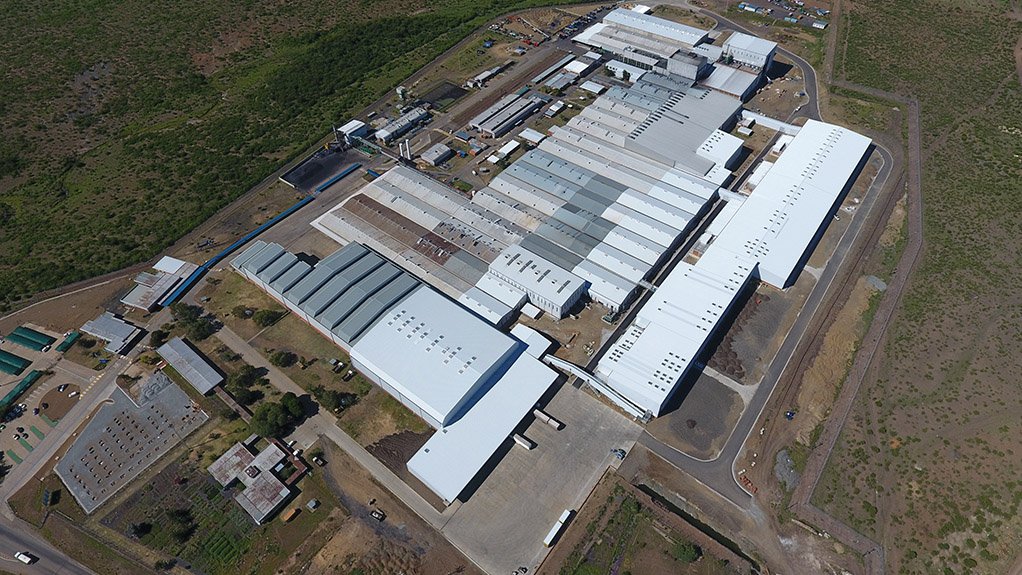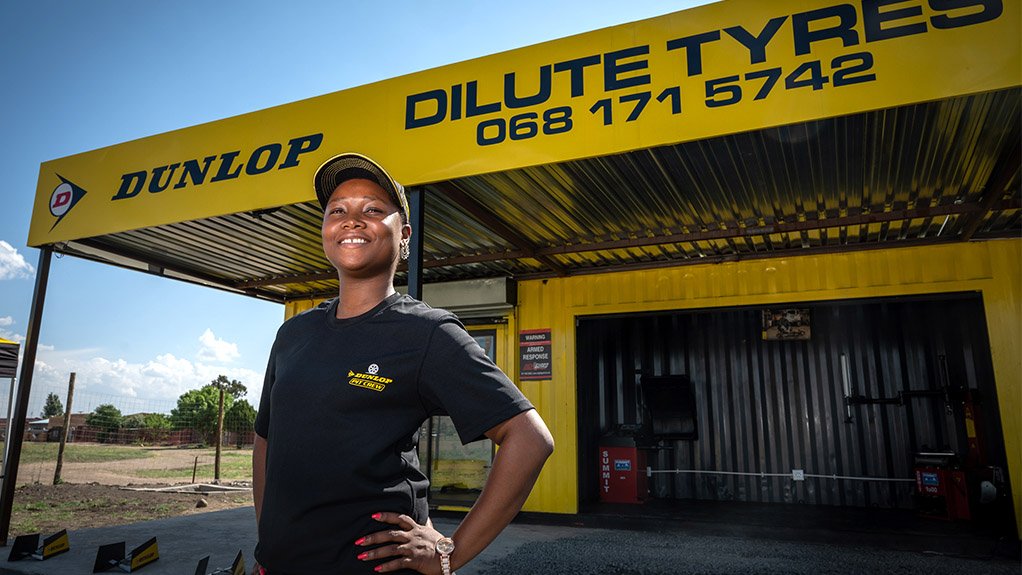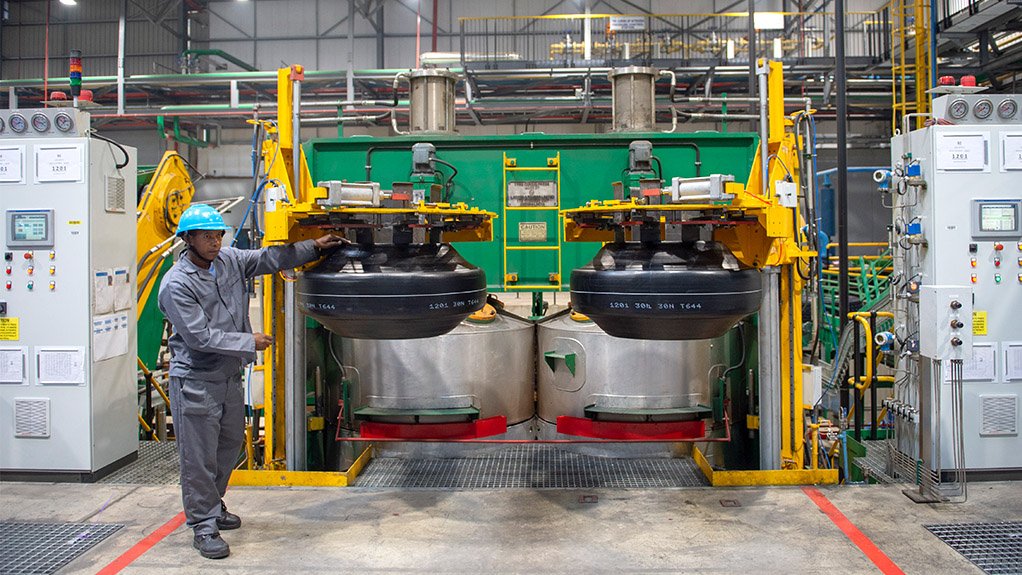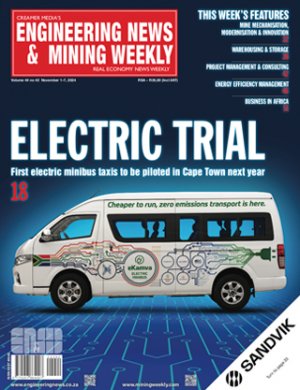A proposed new investment drive by tyre manufacturer and distributor Sumitomo Rubber South Africa (SRSA) – a division of Sumitomo Rubber Industries (SRI) – will enable SRSA to undertake a series of projects.
These projects will improve local production capacity, expand product lines and create new job opportunities at its Dunlop Ladysmith plant, in KwaZulu-Natal.
The plant, which is celebrating its fiftieth anniversary this year, was last expanded by SRSA in 2018 when the company launched its “state-of-the-art” 180 000 m² truck and bus radial (TBR) tyre factory upgrade, thereby facilitating the local manufacturing of truck and bus tyres, which were previously imported.
The plant now offers a variety of locally manufactured Dunlop tyres for passenger vehicles, 4×4s, sports-utility vehicles, motorcycles, light trucks, as well as trucks and buses.
The manufacturer produces popular tyre brands, such as Sumitomo and Falken, while continuing to implement and deliver the latest innovations, says SRSA CEO Lubin Ozoux.
The company is closely monitoring the implementation of the Automotive Industry Master Plan to see how new developments in the motoring industry will affect the tyre- manufacturing industry.
“We fully support the Master Plan’s objectives to expand and strengthen local value chains, and to empower the local automotive industry in its efforts to bolster domestic sectors and foster inclusive economic growth.”
He adds that the company is particularly interested in the motor industry’s urgency around a prompt reassessment of the plan’s expansion goals, mainly owing to the disruptive effects of the Covid-19 pandemic, the challenging economic climate, the ongoing conflict in Ukraine and significant shortages of essential automotive components.
Moreover, other challenges, such as the energy crisis, labour instability, socioeconomic challenges, adverse weather, inadequate infrastructure maintenance, interest rate hikes, dumping and anticompetitive trade practices, high input costs, government and policy uncertainty, and the increased cost of fuel and raw materials also necessitate the effective implementation of the Master Plan.
The Master Plan is built on the pillars of local market optimisation, regional market development, localisation, automotive infrastructure development, industry transformation, technology and associated skills development, Ozoux highlights.
He adds that SRSA plans to incorporate the Master Plan’s objectives into its strategies by investing in its local operations, skills development and entrepreneurial development programmes.
Transformation
Ozoux says “investing in local manufacturing will help to grow South African production’s contribution to global output and increase local tyre content in South African assembled vehicles”.
The company invested R23-million into its skills development programme last year, encompassing upskilling, learnerships and graduate programme.
The programmes are aimed at creating jobs, facilitating skills transfer and transforming the industry through the employment of black South Africans, upskilling black employees and substantially increasing the contribution of black-owned tyre businesses.
“SRSA is the only tyre manufacturing company with a township and rural area enterprise development programme in South Africa which is funded by SRI and the Manufacturing, Engineering and Related Sector Education and Training Authorities. We also have an expansive skills development programme to upskill people for the future prosperity of the local tyre industry.”
Additionally, SRSA offers an international skills development opportunity, with targeted positions for training to enhance capabilities in tyre manufacturing. Eight machine operators and one production supervisor will leave for Japan in September for six weeks of training.
Optimistic About the Future
There are “bright” future prospects for local tyre manufacturers, as car manufacturers continue to favour locally produced tyres, which reduces imports and, therefore, shipping and the associated emissions and costs.
“As a tyre manufacturer, we are grateful for the many opportunities to partner with original-equipment manufacturers (OEMs), including Toyota, Nissan, Isuzu, Ford, TATA, UD Trucks, Scania, MAN, Iveco and Volkswagen South Africa. These partnerships affirm the OEMs’ trust in us as a tyre manufacturer and add credibility to our brand,” says Ozoux. “Further, we are exploring unique opportunities to develop products and services made for local and African road conditions.”
South Africa can house a solid tyre manufacturing sector and has the potential to compete globally and to serve as a manufacturing hub for the continent if government and the private sector work more closely together, he adds.
He emphasises that, besides leveraging government incentives to create much-needed jobs, manufacturers must be sustainable and successful in exporting to attract foreign investment to ensure growth.
“We are focused on innovation, and are leveraging smart manufacturing technologies that will enable us to take our operations to new heights, creating innovative sales and customer service channels, and entrepreneurial development opportunities.”
Further, Dunlop’s plans to establish 48 Business in a Box, or BIB, centres in townships by the end of 2024 will result in prospective entrepreneurs opening their own top-tier tyre fitment centres.
The programme is an extension of the Dunlop Container Project, which has attracted the attention of thousands of participants. Dunlop is reviewing over 200 new applications, of which nearly 70 have been submitted for funding approval, Ozoux concludes.
Edited by: Nadine James
Features Deputy Editor
EMAIL THIS ARTICLE SAVE THIS ARTICLE
ARTICLE ENQUIRY
To subscribe email subscriptions@creamermedia.co.za or click here
To advertise email advertising@creamermedia.co.za or click here

















